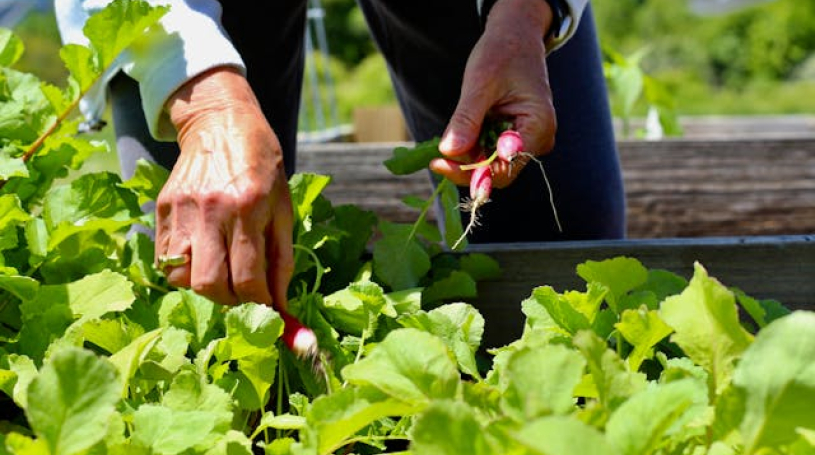How responsible and inclusive tourism is accelerating business wins in Southern Africa

Press Release by SATSA, 9 October 2025
69% of CFOs globally now expect higher returns on investment from sustainability initiatives than from conventional business investments – in short, it pays to care.
The global sustainable tourism market stands at USD 3.56 billion in 2024, forecast to grow at over 11% annually through 2034, according to Precedence Research. These numbers are in response to the fact that 84% of global travellers now consider sustainable practices essential (more than double compared to 2016), and over 40% are willing to pay more for certified accommodation. As a result, international buyers are demanding verifiable credentials as a condition for partnership. Responsible tourism was once a “nice to have”, but it’s now business-critical.
“Our members are seeing that authentic, audited responsible/inclusive tourism is the key that unlocks international contracts, premium positioning, and new demand streams. Those who make this shift early are building the foundations for growth in a market that rewards proof, not promises,” says Hannelie du Toit, COO of the Southern Africa Tourism Services Association (SATSA).
The EU’s anti‑greenwashing requirements, combined with rapidly evolving guest expectations, make credible third‑party certification and genuine impact indispensable. To help members navigate this shift, SATSA, the Voice of Inbound Tourism, has partnered with Fair Trade Tourism (FTT) to turn compliance pressure into competitive advantage, offering a locally developed certification aligned to international standards and practical, step‑by‑step tools for measuring and improving impact.
Accelerated by tightening EU regulations and member concerns about where to start, the partnership provides a clear on‑ramp for businesses that find the journey daunting. SATSA, Africa’s Eden Tourism, and FTT’s recent member webinar – Responsible Tourism = Better Business: Why It Pays to Care – brought this into sharp focus, demonstrating how forward‑thinking tourism businesses across Southern Africa are getting it right. This also dovetails with the Africa’s Eden Tourism–FTT MoU to co‑host bi‑monthly webinars and co‑create resources that build capacity and open market access for responsible operators.
The following insights, drawn directly from the responsible tourism member webinar, illustrate how operators of every type, from rural lodges to city hotels, are turning sustainability obligations into commercial opportunities and measurable growth.
Moving from claims to credibility
In an environment crowded with “green” messaging, genuine impact can get lost in a sea of buzzwords and empty promises. For established businesses like Ghost Mountain Inn, whose family legacy of community involvement goes back generations, this became a real challenge.
As Jean Toucher of Ghost Mountain Inn & Safaris recounted in the SATSA x Africa’s Eden Tourism x Fair Trade Tourism webinar, “We found that our story was being diluted a bit by greenwashing, and people weren’t as believing of where we were going.” Even with strong local roots and real action, doubts lingered (both among buyers and guests) about what was authentic.
That changed when Ghost Mountain committed to Fair Trade Tourism certification. “Now I just send them the Fair Trade certificate and it’s recognised. It gives us that recognition that it’s not greenwashing; that we have been audited,” she explained. Instead of hours spent filling out complex forms for every overseas operator, the third-party badge became a universally accepted signal of credibility.
Jean’s pursuit of certification forced the business to go further: collecting hard data, not just for compliance, but for opportunity. “All my concerns about trying to gather two years’ worth of carbon data were solved because I could just copy it over and send it to [auditors for a carbon-neutral wedding],” she said.
Hannelie du Toit summed up the new reality:
“The era of box-ticking is over. If you don’t have credible, independently verified impact to show, you’ll be filtered out before the conversation even begins. SATSA is working to ensure our members aren’t only compliant, but truly competitive – armed with the certification and transparency the market now demands.”
Responsible tourism as business multiplier
PJ Basson from Montagu Country Hotel described how integrating local artists transformed an unremarkable corridor into an art gallery featuring 23 emerging creatives:
“That one initiative alone helped us sell over 200 pieces, created a platform for local talent, and started conversations with guests that never would have happened through just talking about our green practices,” he shared during the webinar. By tying responsible and inclusive tourism visibly to the guest experience, Montagu Country Hotel increased bookings, gained positive media attention, and built trusted relationships with guests and community alike.
For Michael Daiber of !Khwa ttu San Culture & Education Centre, the impact of involving staff in sustainability wasn’t just internal.
“When our waitress started telling international visitors about our small chicken project (how staff collect kitchen scraps for feed, how they convinced me to give the chickens a home), it had such an impact. That authenticity landed us a partner who has brought over four thousand guests a year to hear the story first-hand,” he recalled. By turning local impact into a differentiator, Michael’s business weathered years of market turbulence and gained loyal, values-driven clients.
This pattern is backed by the numbers: businesses worldwide with sustainability initiatives report improved negotiating power, cost savings, and access to entirely new segments. As mentioned, the majority of CFOs globally expect higher returns from responsible tourism investments than from traditional spend, and more than half of global travellers are actively seeking out businesses able to demonstrate their impact.
It’s a shift echoed by participants like Jessica Salmon from Flatdogs Camp in Zambia, whose deep investment in local education and training produced a generation of skilled leaders from within the community, and Michel Girardin, Fair Trade Tourism Board Member, who noted a “ripple effect” as responsible businesses attract staff, more meaningful partnerships, and – crucially – market preference both regionally and abroad.
Measurement makes it marketable
The edge in responsible/inclusive tourism is proof. Measurement turns values into results, whether that means a carbon-neutral event or storytelling that mobilises guest loyalty.
PJ’s experience at Montagu Country Hotel underlines the value of making responsible tourism visible, translating numbers into impact. Not only did their guest-facing art gallery generate new income for artists and for the hotel; it offered guests a living demonstration of community support, turning every stay into a story.
Michael’s approach shows that stories can be effective commercial levers. “What began as a staff idea – a backyard chicken coop – became the story guests told, the reason partners continued to send groups, and, ultimately, proof that responsible business creates truly memorable experiences.”
This synergy between robust measurement, certification, and authentic storytelling repairs the disconnect between “green” claims and real impact, while enabling operators across Southern Africa to differentiate and confidently answer the toughest procurement questions.
As one recent global study found, 45% of travellers say sustainability certification makes accommodation more appealing, and buyers all over Europe and beyond are moving from promises to proof in their contracting decisions.
In every case, it is the combination of evidence and narrative (a record of footprints and a story worth sharing) that transforms responsible/inclusive tourism into a business asset.
The message for every tourism business is as follows:
- Measure your impact.
- Share your story.
- Get certified, and prove it.
It starts with doing good, which, in turn, empowers you to do smart business in a world that rewards those who lead with both heart and evidence. The next wave of growth in Southern African tourism belongs to those who embrace this commercial edge, today.
Ends
For media enquiries contact:
Sonnette Fourie





















